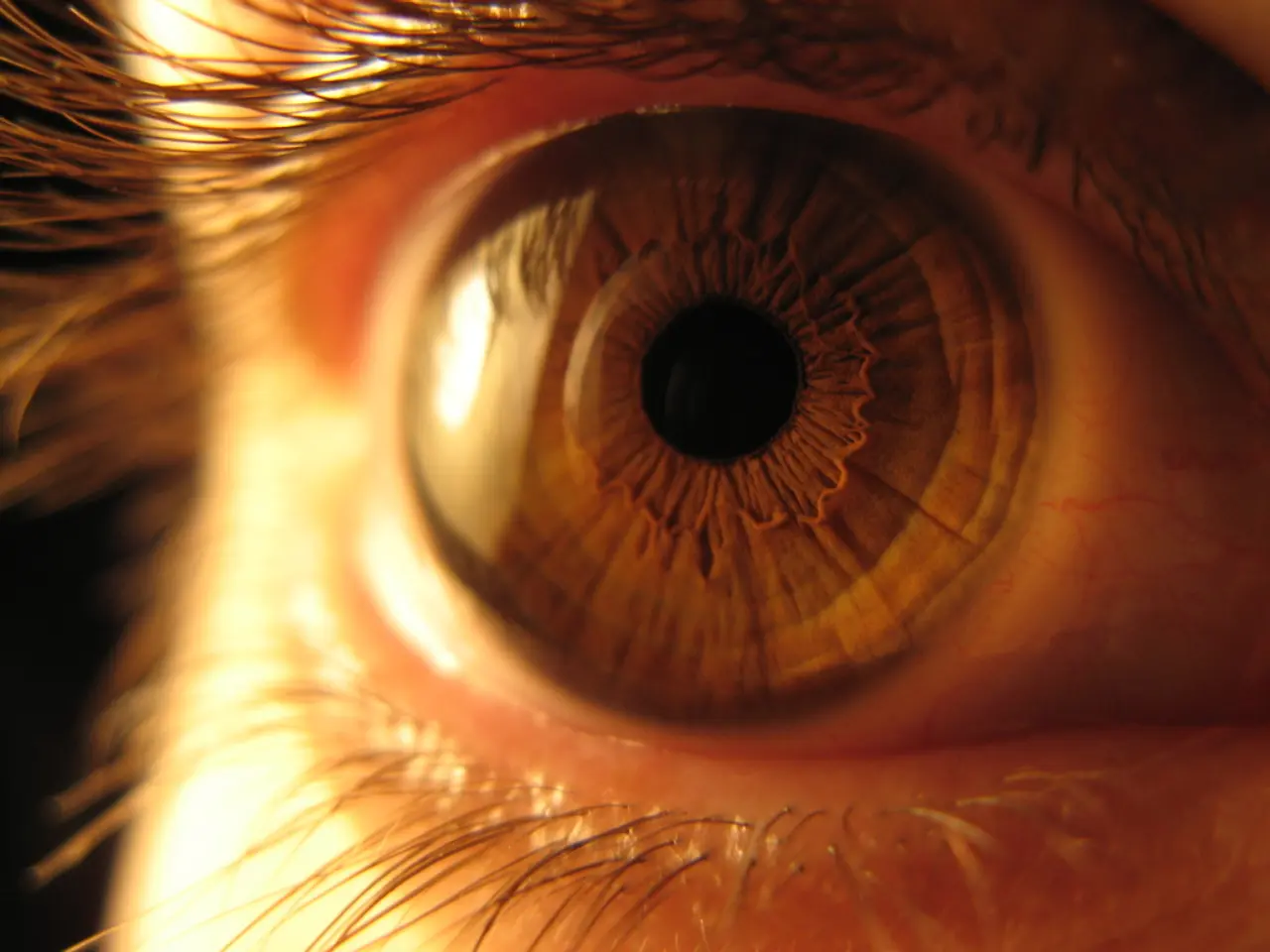Impact of Dehydration on Eyes: Remedies and Preventive Measures
Dehydration can have a significant impact on the health of our eyes, causing dryness and discomfort. This occurs because the body lacks sufficient fluids to maintain a healthy tear film, which protects and lubricates the eye surface.
Effects of Dehydration on the Eyes
Dehydration can lead to reduced tear volume, causing dryness and irritation. Moreover, lack of hydration can alter the quality of the tear film's oily layer, increasing tear evaporation and dryness. As a result, symptoms such as redness, itchiness, burning sensations, a gritty feeling, and blurred vision can occur.
Recommended Treatments for Dry Eyes Related to Dehydration
The American Academy of Ophthalmology (AAO) recommends several treatments for dry eyes, including maintaining proper hydration, using lubricating eye drops, practicing good eyelid hygiene, and making lifestyle modifications.
- Hydration: Drinking at least eight glasses of water daily is essential to maintain adequate body and tear hydration.
- Lubricating eye drops: Use artificial tears or rewetting drops, especially formulations compatible with contact lenses if applicable, to provide immediate moisture and relief.
- Warm compresses and eyelid hygiene: Applying warm compresses for 10-15 minutes daily and gently massaging eyelids can help improve oil flow from meibomian glands, stabilizing the tear film.
- Nutritional support: Increasing intake of omega-3 fatty acids and antioxidant-rich foods can improve tear film health and reduce inflammation.
- Lifestyle modifications: Following the 20-20-20 rule, blinking consciously during screen use, avoiding excessive caffeine and alcohol, managing stress, and ensuring quality sleep can support eye recovery and tear production.
Preventative Measures
Preventing dehydration is key to preventing dry eyes. Some preventative measures include maintaining proper hydration consistently, using a humidifier in dry indoor environments, avoiding prolonged exposure to airflow sources like fans or air conditioners, practicing good eyelid hygiene, managing workload on the eyes by taking regular screen breaks, and positioning screens below eye level to reduce tear evaporation.
If symptoms are severe, persistent, or accompanied by vision changes or pain, seeking professional eye care is important to rule out more serious conditions and receive appropriate treatment.
In summary, dehydration leads to dry eye symptoms by reducing tear volume and quality, and effective management involves maintaining hydration, using lubricants, proper eyelid care, nutrition, and environmental and lifestyle adjustments to prevent and alleviate dry eyes. Some additional tips for preventing dehydration include keeping a water bottle on hand, adding flavor to water, and consuming water through fruits and vegetables with a high water content. The AAO recommends drinking 8-10 glasses of water each day to treat and prevent dry eyes from dehydration.
- Dehydration, a medical condition, significantly impacts health and wellness, particularly eye health, causing discomfort and dryness due to insufficient fluid levels for maintaining a healthy tear film.
- Alongside drinking at least eight glasses of water daily for body and tear hydration, recommended treatments for dry eyes linked to dehydration include lubricating eye drops, warm compresses, eyelid hygiene, nutritional support, and lifestyle modifications.
- Preventative measures to avoid dehydration and associated dry eye issues include maintaining consistent hydration, using a humidifier, avoiding prolonged airflow exposure, good eyelid hygiene, managing workload on the eyes, and positing screens below eye level.
- Besides water, additional tips for preventing dehydration include adding flavor to water, consuming high-water content fruits and vegetables, and ensuring regular intake of omega-3 fatty acids and antioxidant-rich foods for overall health and tear film health.
- If dry eye symptoms persist or worsen, including vision changes or pain, seeking professional medical help is crucial to rule out any serious conditions and receive appropriate therapies and treatments.




